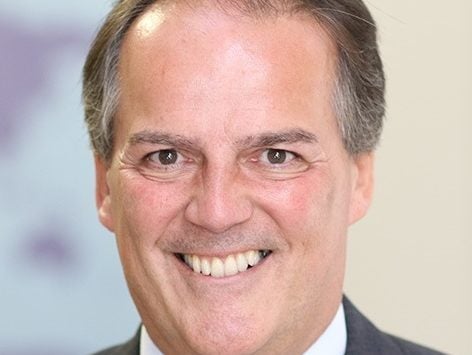
The Foreign Office will dedicate as much time and money as possible in 2019 to “stop the intimidation, harassment and persecution of journalists across the world”, a minister has pledged.
MPs spoke out yesterday in support of the international protection of journalists after former Culture Secretary John Whittingdale described 2018 as “one of the worst years on record for journalists being killed, imprisoned or held hostage”.
Separate figures compiled by the Reporters without Borders (RSF) and the Committee to Protect Journalists, put the death toll of journalists and media workers last year at 80 and 83 respectively.
Whittingdale said: “Journalists play a vital role in a free society. Their role in exposing corruption, in highlighting injustice and holding governments to account, helps to make a democracy function, but it does not always make them popular.
“Sadly in authoritarian regimes that often leads to imprisonment, their being taken hostage, intimidation and sometimes even death.”
Need to be ‘very wary’ about language against journalists
After listing the “perhaps predictable” countries with the worst record for journalist deaths and imprisonment, including Afghanistan and Syria, Whittingdale said: “Sadly, it is also happening in Europe”.
“I want particularly to mention the murder of Daphne Caruana Galizia in Malta at the end of October 2017, and the death of Jan Kuciak in Slovakia, and Viktoria Marinova in Bulgaria,” he said.
Putting forward US President Donald Trump’s attacks on the press as an example, Whittingdale added: “The climate that provokes hostility towards journalism is, to some extent, encouraged by intemperate remarks from people who really should know better.”
Lib Dem MP Christine Jardine warned that “even in this country we have to be very careful what we say about our attitudes to journalists”.
“As a former journalist, I am well aware that one of the prerequisites for the job is the willingness to put yourself at risk in order to uncover public injustice in this country and abroad.
“Perhaps we need to be very wary in this country, as elsewhere in Europe, about the intemperate language we use.”
‘Unacceptable levels of harassment’
Foreign Office Minister for Asia and the Pacific, Mark Field (pictured), acknowledged that “there can be no doubt that media freedom is under increasing attack across the world”, adding “The climate is worsening fast”.
He added: “Here in the UK, we have long had a culture of supporting freedom of expression. We are rightly proud of our tradition of an independent media, which underpins the fundamental values of our democracy.
“As a consequence, we collectively tolerate the excesses and at times the low journalistic standards of our tabloid press. That is a price we have to pay.”
But, he pointed to the “unacceptable levels of harassment” seen against Sky News journalist Kay Burley, as well as against anti-Brexit MP Anna Soubry and journalist Owen Jones as they left media interviews on Monday.
Speaking in the Commons yesterday, Theresa May said: “In recent days, we have seen instances of threats of violence or intimidation against Members of this House, including [Soubry] and members of the media.
“I know the whole House will join me in condemning those threats. Politicians and the media should be able to go about their work without harassment and intimidation.”
Field said: “A free press is the lifeblood of a healthy democracy, because it holds the powerful to account, helps to expose corruption and lack of integrity, and is one of the best antidotes to disinformation.
“That is why we must take action to stop the intimidation, harassment and persecution of journalists across the world, and is why this year we will place as many of the resources as we can from the Foreign and Commonwealth Office -not only financial, but in time terms, too – behind a campaign to reverse the worrying trends outlined in this debate.”
Several MPs used the Westminster Hall debate to highlight the cases of persecuted journalists around the world, including Turkish journalist Pelin Unker who was sentenced to more than a year in prison this week for her work on the Paradise Papers investigation into offshore tax havens.
They also asked for action for BBC Persian journalists and their families who face an “escalating” campaign of harassment from the Iranian authorities and Azerbaijani journalist Mehman Huseynov who is currently on hunger strike after being convicted and imprisoned for “slander”.
The Foreign Office will hold an international conference on media freedom in London later this year.
Whittingdale, who is chair of the British group of the Inter-Parliamentary Union, revealed he is planning to organise a parallel conference, saying: “While the FCO can try and reach agreement among Governments that more needs to be done on as wide a basis as possible, we can try to mobilise parliamentarians from different countries to give this priority.”
Press freedom ‘approached with new vigour’
Field also took on board proposals from campaign group Reporters Without Borders for a UN representative for the safety of journalists, saying: “I know that is something that is actively being pursued.”
Society of Editors executive director Ian Murray welcomed the tone of the MPs’ debate, saying: “Although the British media can raise an eyebrow when politicians here in the UK speak of press freedoms in the light of many recent attacks on such liberties on our shores, it is heartening to see a determined focus on Britain’s role in the world in such matters.
“The Society of Editors and other media bodies have often pointed to the UK’s reputation as a beacon of hope for people around the world who do not enjoy the support of a free press and the defence of democracy and barrier to corruption such institutions provide.
“Some in politics here have not always heeded that call, but it appears that the issue will be approached with renewed vigour in 2019.”
Picture: Parliament TV
Email pged@pressgazette.co.uk to point out mistakes, provide story tips or send in a letter for publication on our "Letters Page" blog
